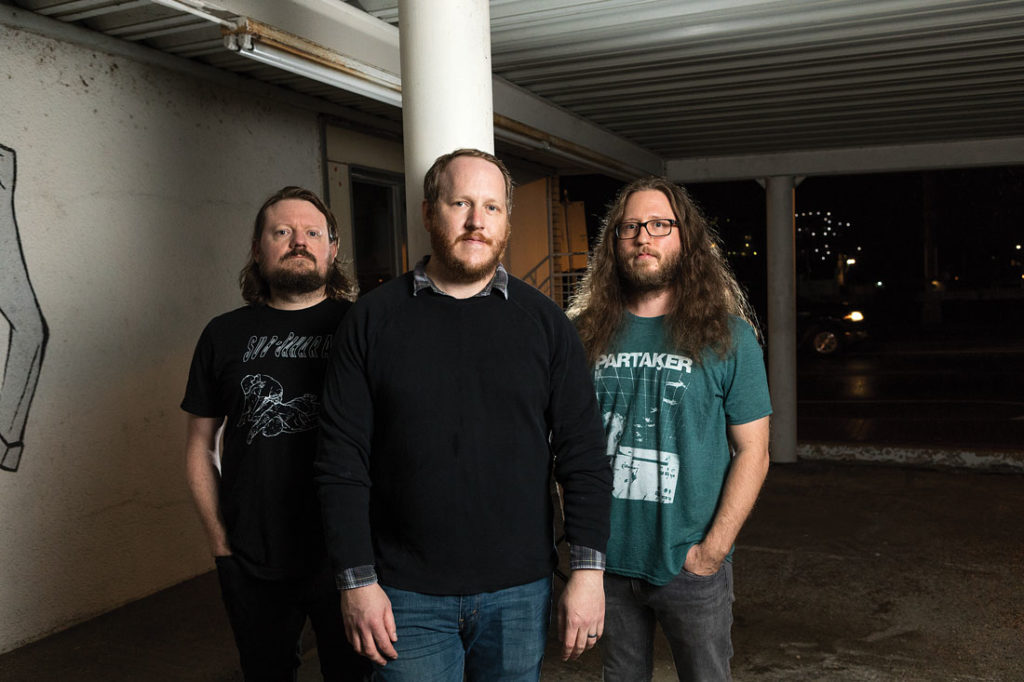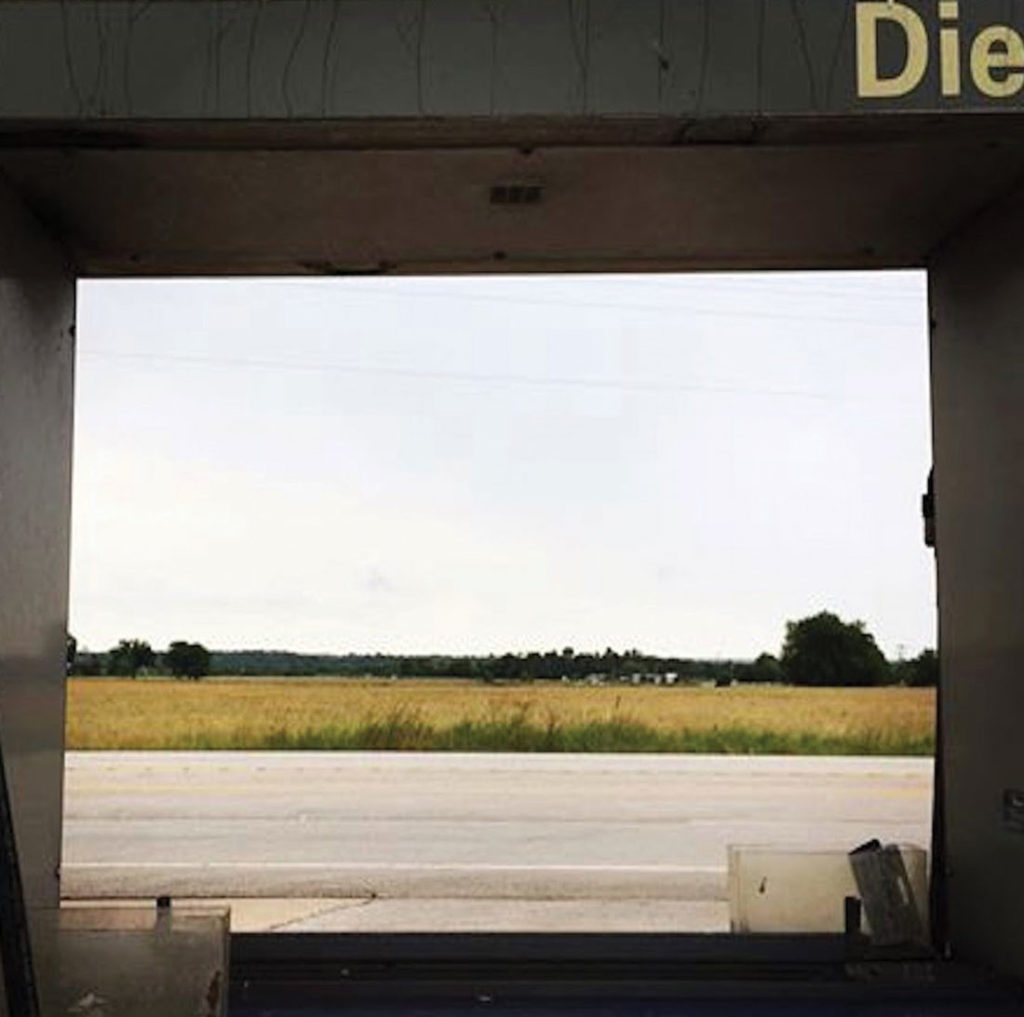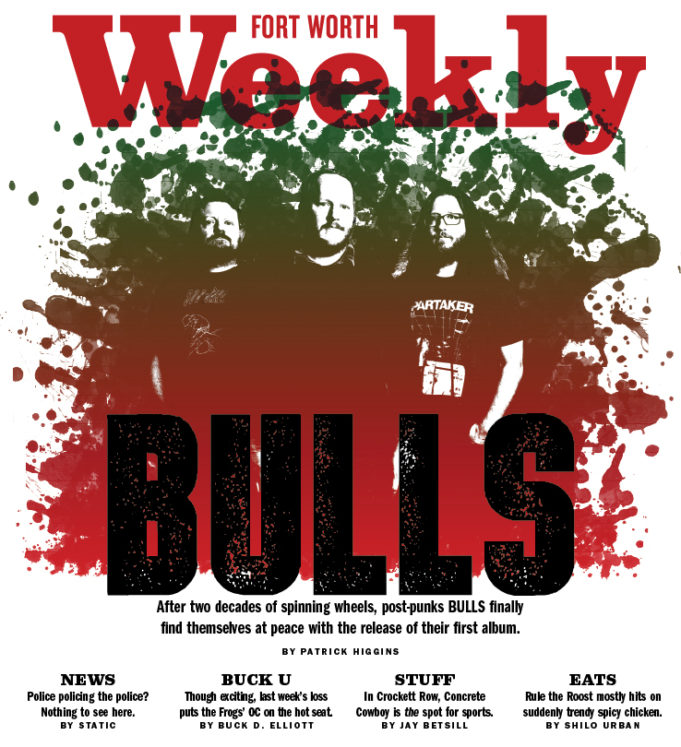As social and mainstream media gleefully continue to shovel coal into the furnace powering the generational culture wars, the chasm between people born in the years after WWII and those whose childhood straddled the turn of the century interminably deepens. With all the attention paid to this conflict lately, it can be difficult to remember that nestled between the sixtysomethings and their derisive begrudging of “millennial snowflakes and the twentysomethings with their dismissive “OK, boomer” eye-rolling reside the Gen-Xers.
Labeled a “lost generation” defined by apathy and indifference, Generation X is caught between those accused of killing the planet and those who wish to save it. Gen-Xers are old enough to fondly remember a time when lives existed outside of screens, with endless streams of ones-and-zeros perpetually searing our corneas, but are largely inoculated against the fear-stoked, foresight-blunting nostalgia for those times that seems to plague their elders.
One specific boon, however, to having come of age during the Clinton years is in the music that informed the youth of that era. A backlash to the Aqua Net-clouded, leather-donning hair metal and neon bubble-gum pop of the ’80s peaked with the explosion of Nirvana in the early ’90s, and an entire universe of anti-pop sounds of every genre followed in its wake. Young ears hungry for music that spoke to them emotionally — rather than trying to inspire them to dance, party, and seek sex — were surprisingly greeted with former undergrounders like the Pixies and Sonic Youth suddenly on MTV alongside the usual Madonna and Paula Abdul videos.
For some, those initial teases, brought about by major labels chasing the next “Smells Like Teen Spirit,” inspired a chase for music that was, by nature, less and less commercially viable and which existed further and further underground. For these types, so-called “Alternative Rock” would be a gateway to hardcore, punk, shoegaze, emo, and post-rock. Big Music hadn’t yet choked nearly all the life from the independents, and there were no parasitic streaming services in existence to leech off what remained. A handful of small and mid-tier labels were actually able to propagate and sustain ever-growing rosters of interesting, boundary-pushing artists who could still carry music over terrain that hadn’t previously been traversed. For those inspired by the sounds, an endless hunt for sub-genre after sub-genre led them to loiter for untold hours in the bygone music and cultural epicenters of the day — the independent record store — forever seeking a rare, previously unheard treasure.
Most Gen-X music obsessives, especially those reared in the secluded, aseptic confines of suburbia, can probably relate stories about their own local record store and one or two practically messianic employees who worked there and whom they credit for the beginnings of their musical education. Through these often unkempt and overtly sarcastic sages, armed with their encyclopedic knowledge of limited-run Japanese 7-inches from labels like K Records and SST, countless bands were discovered by eager youths who studied them. As a result, a few ambitious students were even inspired to form their own bands.
BULLS — one of North Texas’ most expressive underground-inspired groups — is one such band. The three-piece’s signature blending of powerful cascading post-rock motifs with the raw emotional charge of punk rock could have been incubated only in this special time in music history — a time when experimentation was at its peak and when what could be called “rock” music was stretched to its limits, encompassing the electronic-tinged jazz of Tortoise and the Baroque-style chamber music of Rachels, the Spaghetti Western mourning of the Dirty Three, and the noisy aural assault of Shellac. BULLS are currently celebrating the release of their first album, a milestone long overdue. To finally achieve that all important career marker took a journey that began in just such a small independent record store more than 20 years ago.
*****

“I was working at this record store [CD-X in Hurst], and they would come in and shoplift,” bassist Dylan Holt said, referring to his band mates, seated on one of two chairs in BULLS’ modest rehearsal space on Fort Worth’s east side. I accepted the other chair. Guitarist Jeff Schlueter sat next to Holt atop one of the many vintage guitar amps cluttering the room. Drummer/vocalist Ricky Del Toro, with whom I also play in a band, took his customary seat behind his kit, leaning back on his throne against the wall behind him.
“They were just these two young teenagers who couldn’t buy beer,” Holt continued. “They would roll up to the strip mall in Jeff’s grandmother’s mid-’80s Cadillac Brougham. Jeff had a halo, or a mohawk, or some other stupid punk rock haircut, and I was just like, ‘Oh, geez. What’s up with these guys?’ ”
At the time, Schlueter, who grew up in Hurst, and Del Toro, who had recently moved to town from Los Angeles, had been playing in a juvenile punk band called Mr. Green, sarcastically named after Schlueter’s “asshole” neighbor.
“We were just dumb 15-year-old kids who wanted to play something fast,” Schlueter demurred when asked to describe Mr. Green.
The band’s bassist/singer wanted to take them into a more melodic metal vein a la Tool, and the other two were vehemently opposed. In fact, their own musical interests had also begun to branch away from their formative punk roots and into a far different direction, toward the mathy instrumental post-rock that was starting to gain underground acclaim in those days — bands like Don Caballero and Storm and Stress, who shamelessly caterwauled through epic, dissonant 11-minute songs with insectine arpeggiated guitar lines, percussive bass stabs, whiplash-inducing time changes, and talk-singing or even flat narration, if there were vocals at all.
Mike Hedly was a coworker of Holt’s at CD-X, and he served as the de facto musical role model for many of the young, impressionable regulars of whom Schlueter and Del Toro were a part. One afternoon, Schlueter went to the shop to receive his usual tutelage from Hedley. Louisville post-hardcore outfit Rodan was playing on the shop’s overhead speakers.
“I was like, ‘Whoa, who the fuck is this?,’ ” Schlueter recalled. “And Mike said, ‘If you like this, I should introduce you to [Holt]. He plays bass and writes a bunch of Polvo-[type] songs. And I was like, ‘Cool. Who’s Polvo? Can we listen to that next?’ ”
Schlueter and Del Toro became deeply inspired by the sound coming from the Louisville scene and the roster of Quarterstick Records, a subsidiary of Chicago’s Touch and Go which specialized in predominantly instrumental post-rock. After the dissolution of Mr. Green, Del Toro and Schlueter began experimenting, abandoning three-chord punk riffs for more mathy minor-key progressions.
“We were really trying to push it with how complicated we could get with our songwriting and our abilities,” Del Toro said, “which, admittedly, was not very far.”
Holt recalled hearing some of Del Toro and Schlueter’s first roughly recorded songs aimed at this new direction. “I remember hearing those first few songs,” Holt said, “and it didn’t really sound like [the music they were trying to emulate], but there was a core of it there.”
After Hedly forced an introduction, Holt, who was in his early 20s, eventually warmed to the younger Del Toro and Schlueter through their similar musical tastes. The latter were interested in Holt as a potential bass player for their new project. The fact that he was old enough to buy beer certainly didn’t hurt. It wasn’t until the three went to a show to watch a local band called Deadpan — perhaps the first in the area to tackle the post-rock sound — that they were motivated to try to play together.
“Deadpan was a band from here that was already doing” post-rock, Del Toro remembered, “and doing it very, very well. Seeing them actually pulling it off was like, ‘Yeah! Great! This is amazing. I want to make music like this, too.’ ”
Holt agreed. “That’s essentially what the band was,” he said, referring to the trio’s initial efforts. “It was really just trying to be Deadpan.”
In 1997, the three formed a purely instrumental group, utilizing looping pedals to thicken the sound beyond what three people were normally capable of. They called themselves Lancaster, a name taken from the street where Schlueter’s father owned a bingo hall and where the fledgling band would rehearse. As with any young band still free of the obligations of actual adulthood, they holed themselves up in their rehearsal space and wrote constantly, hundreds of songs, by Del Toro’s guess, constantly experimenting and trying to refine their sound. They would play out as regularly as they felt they could, but by Holt’s admission, it wasn’t very often.
“Over the first 15 years, we played maybe six or seven shows,” he said. (Del Toro contends this is an exaggeration but only slightly.) “We just never left the practice space. We never felt motivated or comfortable enough with the material to say, ‘Let’s go play a show.’ ”
A few years after the turn of the millennium, Lancaster had pretty much petered out. Actual adulthood eventually came to claim the band members, with marriages and fatherhood following suit. New responsibilities, coupled with the closing of Denton’s Rubber Gloves Rehearsal Studios, one of the few North Texas clubs friendly to strange and unproven band, which Lancaster saw as a home base for the modest scene they felt they were a part of, put a fatal end to the band. They abandoned the name Lancaster (without a replacement) but would still get together occasionally to jam in the bingo hall or later at the spot they are still in today, sometimes regularly, others with years passing in between, but, in truth, they were done.
“It became like your dad’s bowling night on Mondays or a pick-up softball league,” Schlueter said, “more of an escape from domestic life than anything else. It was just guys hanging out drinking beer. It never would have lasted even that long if we weren’t such good friends.”
Eventually, things slowed to the point that Holt moved to Dallas, a final nail. More than 10 years would pass before the three of them would reconvene in earnest and take one last legitimate shot at being a working band again.
*****
In early 2014, Schlueter began to work on Del Toro about playing together again. Del Toro had just had a son, and the idea of re-introducing the conflicts that being a musician can have with domesticity wasn’t exactly enticing, especially if they were just going to continue to mess around in the rehearsal space with no one to ever hear their efforts.
“My attitude at the time was basically, ‘Well, if we’re going to do this, we’re going to do it’ and [actually] try to make something of it,” Del Toro said.
Del Toro had other ultimatums. After playing for years without one, they would have to pick a name and book a show before they found a place to practice and wrote a note of music, hoping a defined deadline would provide the motivation they needed to really do something. They were also going to drastically simplify the music they were going to make. The loop stations, which had always been a quirky and unreliable tool, were scrapped. The basic idea was to write concise material that they could pick back up quickly if a lot of time passed between rehearsals, as it inevitably would.
“We ditched the tech,” Del Toro said, referring to the loopers. “We also knew that we weren’t going to be in this room two or three times a week. It might be every other week, or once a week, if we were lucky. The focus was going to be on writing songs that if we hadn’t seen each other in a couple months, we could pick back up quickly, kick the rust off, and go play in front of people, and it wouldn’t be a total shit-show.”
The average BULLS tune now clocks in at a compact two and a half minutes. One final change was the most significant. Del Toro was going to sing.
“Adding a vocal element made all the difference,” Schlueter said. “They were songs then, not just parts. It really changed the way we developed songs by actually writing for vocals.”
Del Toro elaborated, “After being an instrumental band for more than a decade, we decided we needed some sort of anchor to the songs — to give an easy way to find where the emotion of the song is.”
The two settled on the name BULLS, which only coincidentally shares a similarity with Del Toro’s surname.
“It’s funny,” Del Toro said. “A few people think ‘Del Toro’ is a pseudonym that I use because of the band, but it really has nothing to do with it. I think Jeff came up with it. We needed a name to book a show, and it was just one we thought nobody was using at the time, so we went with it.”
Del Toro and Schlueter booked a show as a duo at West Berry Street’s now defunct basement bar The Cellar and began writing new songs, at the time largely inspired by Dallas stonegazers True Widow. As they had done throughout their time playing together, the two began recording simple demos of songs by tracking live takes with a single microphone in the center of the room. They began sharing the recordings through their shared Dropbox account, an account that Holt still had access to.
“Somehow my email was still linked to that ’Box account,” Holt said. “I saw they had posted some songs and thought, ‘Oh, what’s this?’ I listened to them and was like, ‘Oh, my god! This is fuckin’ dope!’ ”
Holt, who, at the time, had been very close to selling his gear and quitting music altogether, was intrigued. He reached out to the others, mentioning that he had happened to hear the new songs. Del Toro then asked if he wanted to be involved. Holt absolutely did, and it wasn’t long before he was fully back in and acclimating to the band’s new direction.
“I think it was that first practice back when I was like, ‘Oh, yeah. I remember what this was like,’ the whole riding a bike thing and all that,” Holt said.
The sludgy True Widow-inspired sound was short-lived, the trio settling into more familiar musical motifs and capitalizing on the chemistry they had always possessed, albeit with a more mature and editorial take. They began picking up what odd shows they could, often mismatched with “a bunch of butt-rock and metal bands,” as Del Toro put it. Eventually, they would cross paths with like minds in professorial indie-rockers Tame … Tame and Quiet and melodic punk rockers Heater. Through joining them on bills, BULLS finally felt they had found a niche within Fort Worth’s multifaceted music scene.
A relationship soon developed with Dreamy Life Records (War Party, Acid Carousel, Sub-Sahara), and over the next few years, the trio would release two EPs: a self-titled six-songer in 2015 and 2017’s succinct and appropriately titled 14 Minutes. Through those releases, with regular gigging and the odd short tour swing, BULLS began to garner a small but fervent fanbase both in the area and outside North Texas.
*****

Somewhere in the fall of 2018, BULLS had been thinking of recording another album. They were considering options on how they were going to make it when the opportunity inexplicably sought them out. Through the suggestion of a mutual friend, Sterling Cash, who fronts a BULLS kindred spirit in Partaker, producer/engineer Alex Bhore (Nervous Curtains, Pearl Earl) caught a BULLS set at Double Wide in Dallas.
Bhore recalled the show and how it motivated him to reach out. “There was a period of time last year where it seemed like every group I was working with would bring [BULLS] up to me in conversation,” Bhore said. “I checked out their older recordings and was immediately into what they were doing. [They have] great dynamics and a very unique balance of melody and rhythmic ferocity. When I finally got a chance to see them play live, I was floored and knew that we had to work together.”
Del Toro was almost in disbelief as he and Bhore met after their set was done. Bhore, Del Toro said, “came up to me after the show and was just like, ‘Hey, I want to record you guys.’ ”
Bhore, former drummer of near-legendary Texas post-rockers This Will Destroy You, had been an understudy to Grammy-winning producer John Congleton (St. Vincent, The Walkmen) at Congleton’s Dallas-based Elmwood Recording, serving as an assistant engineer on several of Congleton’s projects. As Congleton has now permanently relocated to L.A., Bhore has taken over Elmwood. When BULLS learned more about all of the work that Bhore had done, not to mention all of the notable artists who had tracked in that studio, including BULLS favorites Bill Callahan and Swans — along with a ringing endorsement from Zach Edwards, who had recently tracked the forthcoming debut record from his electro-psych-dirge project All Clean — they were sold.
Initially, the unreleased material the band had amassed was planned as two separate EPs, but at Bhore’s suggestion, they combined them into what would become their first full-length. Hamstrung in the past by limited funds, which forced them to work quickly and make sacrifices while in studios, BULLS were never truly satisfied with the end product of their previous releases. There was admittedly some trepidation about the expense of an even larger project and the possibility of being left with the same anticlimactic result. Once they did decide to take the plunge, in a text thread, Del Toro joked about the commitment. “Okay,” he said, “we’ll do one more [album]. Then, we die.”
The off-hand joke would ultimately become the inspiration for the album’s title. The trio went into Elmwood with Bhore to begin tracking Then We Die in January of this year.
The risk paid off. The working relationship with Bhore, both as a producer/engineer and as an individual, proved to be just the thing the band was looking for to finally capture on recording how they felt they came across onstage.
“Alex was really invested,” Holt said. “He really paid attention when we were tracking, saying things like, ‘Yeah, that was OK, but I think you have a better one in you.’ He’d call out to specific changes in our songs, and that showed he really knew what was going on” with the material.
“It was truly an amazing experience,” Schlueter agreed. “I only have anything positive to say about Alex” and his work.
Holt credits Bhore’s patience for the album being one they are finally happy with.
“We would not have come out of that studio with this record if it wasn’t for him,” Holt said. “It was the first recording experience where we didn’t have to track/mix/master/done in, like, a few days. He really spent the time.”
Then We Die does, in fact, seem to successfully capture all the energy and contrasting moods that BULLS are known for as a live band. The frenetic break-neck momentum of songs like album opener “Seismic” and the rapid eighth-note onslaught of “Salt” are balanced tastefully with the dreamy, ocean wave-riding of “Hart” and the mournful plea “Cartel.” Del Toro’s vocal is mixed more prevalently than it is on the previous EPs, which adds a deeper dimension to the emotional push and pull of BULLS’ music. From whisper-quiet lines to all out anguished screams, the anchor that Del Toro wished for when he decided to tackle singing keeps the boat that is BULLS’ sound moored closely to the dock of the vision they want the listener to experience.
In addition to finally having an album that the threesome feels is representative of their spirit, they’ve gone a step further than they have before in putting themselves out more vividly to their listeners. For the first time, Del Toro has published his lyrics, a move he credits to interest shown by a young fan from Brazil.
“This kid messaged me through Bandcamp asking if I could give him the lyrics to one of our songs,” Del Toro said. “It was the first time I realized that people might be interested in what I was singing about, so I decided, ‘What the hell? I’ll just do it from now on.’ ”
Themes of conflict and struggle, of panic and discomfort, permeate the jittery rumble and gliding slumber inherent in the band’s polar sonic textures.
Then We Die was released suddenly and unceremoniously via Bandcamp on September 13, announced with a mere, “Here it is”-type Facebook post. It was an impromptu decision that Del Toro said he owes to the marketing skills that the band members have still somehow never developed in their 20-plus year history. Holt had wanted a proper release with an accompanying show, something they had never done. 14 Minutes was also released without warning on Bandcamp, but then it was accidental. An attempt to post a private link to the site went public, and they just decided to leave it.
Del Toro defended the decision. “How much better could it have been if we did it the right way, anyway?” he scoffed.
The band has been surprised by the response the album has generated so far. They regularly receive messages from fans across the country (and abroad) who have chanced to hear some of the tracks on various playlists or college radio shows. BULLS are currently in talks with Baltimore’s Reptilian Records (Supersuckers, The Cutthroats, The Dwarves) for a vinyl release of Then We Die early next year, and a deal seems imminent. The band will take a bit of time off before the new year before hitting stages again, hoping to support the vinyl release of the album starting in February.
After more than two decades of making music together, to finally have some recognition, even if on a small scale, is all the three could have ever hoped for.
“We make music,” Del Toro said. “This is what we do. It’s not a product, so we’re not ever going to advertise or make a big production out of it. [Despite that], the amount of outpouring, sharing, and support we’ve received from releasing this album — it’s honestly a little intimidating. I appreciate the fuck out of it. I genuinely hope people love the shit out of it. I certainly do. And I hope they feel the same way about it.”












